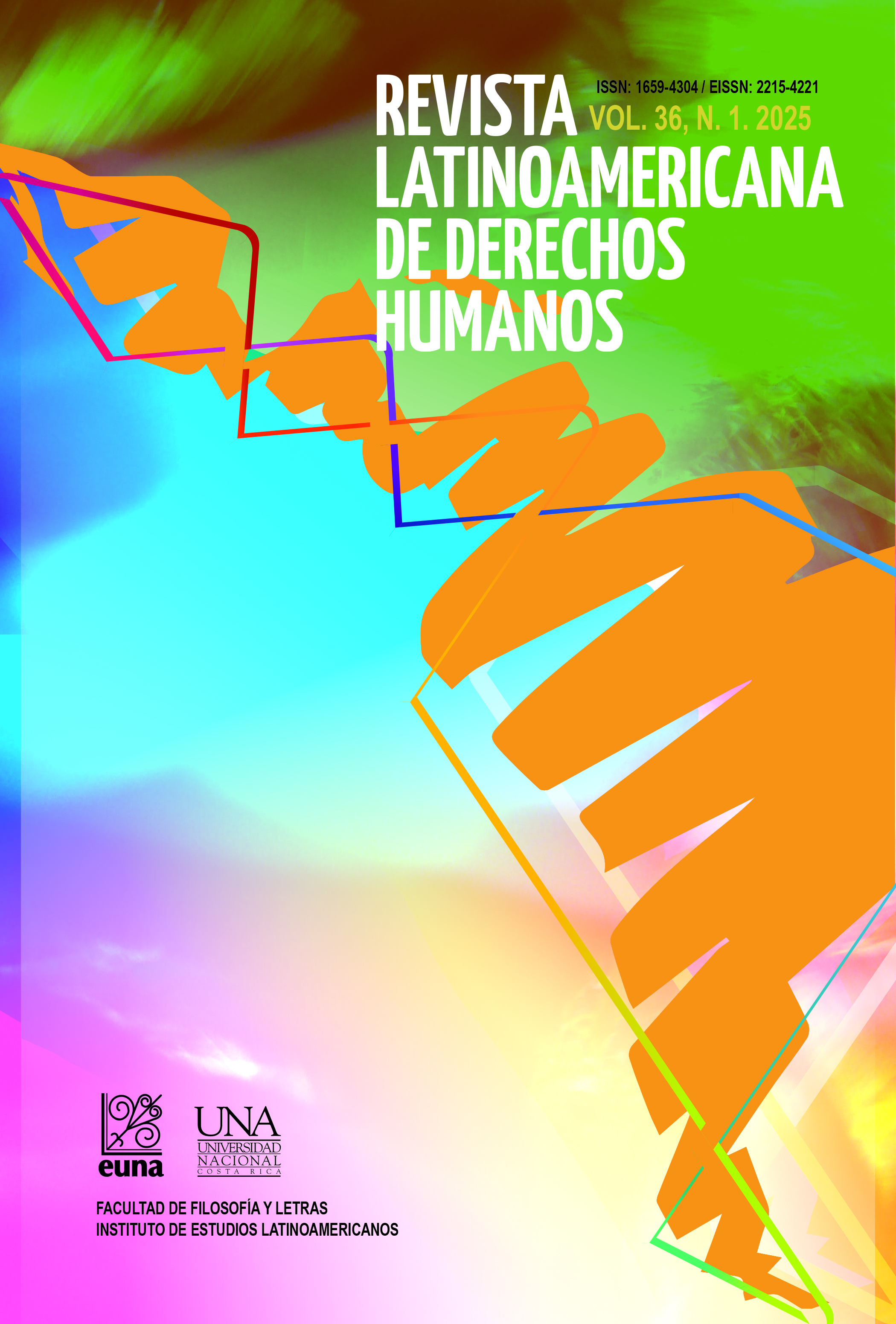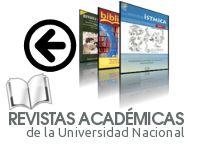Pressing Challenges for Educators Committed to Citizenship and Human Rights Education through Model United Nations
DOI:
https://doi.org/10.15359/rldh.36-1.2Keywords:
professional practices, teaching, Model United Nations, human rights educationAbstract
Model United Nations (MUN) role-playing simulations serve as an exceptional tool for applying pedagogical principles rooted in global citizenship and human rights education. When teachers undertake pedagogical guidance to various high school student groups, they are aware that the process culminating in the UN staging is fraught with unforeseen occurrences, despite thorough planning. The possibilities of sustaining non-formal education activities in the medium term largely depends on the commitment and unwavering dedication of the teaching staff. This article focuses on that commitment. Rooted in a socio-community framework with careful attention to territorial articulation, collective efforts were made to meet the expectations of the student groups involved. The collaborative initiative took place at Secondary School No. 5 in Ezpeleta, Buenos Aires Province, Argentina, which is one of the most representative venues for the Model United Nations of the National University of Quilmes (MONUUNQ). Throughout and after the COVID-19 pandemic, an extraordinary capacity for contextual adaptation enabled the sustaining of on-site workshops, training sessions, and role-playing simulations. Particular attention was focused on enhancing the pedagogical-didactic strategies of the institution's educators, who had highly heterogeneous profiles in relation to the practice of MUN. The records and testimonies of the student participants enable us to reinterpret, in a highly positive manner, the experiences and practices that have had a significant impact on the school.
References
Cullen, C. (2005). Perfiles ético-políticos de la educación. Editorial Paidós.
Escuela de Educación Secundaria n.° 5 “General Martín Rico” (2022, 31 de octubre). [Página de Facebook] https://www.facebook.com/secundaria5quilmes/videos/643620710536708/
Honorable Congreso de la Nación Argentina (2006). Ley de Educación Nacional n.° 26.206. Publicada en el Boletín Oficial del 28 de diciembre de 2006; Número: 31062, Página: 1 (Argentina). https://servicios.infoleg.gob.ar/infolegInternet/verNorma.do?id=123542
Magendzo, A. (2009). Ideas-fuerza y pensamiento de la educación en derechos humanos en Iberoamérica. En A. Magendzo (Ed.) Pensamiento e ideas-fuerza de la educación en derechos humanos en Iberoamérica (pp. 4-25). Ediciones SM.
Organización de Naciones Unidas, 1993. Declaración y Programa de Acción de Viena, 2ª Conferencia Mundial de Derechos Humanos. https://www.ohchr.org/sites/default/files/Documents/Events/OHCHR20/VDPA_booklet_Spanish.pdf
Penhos, M. (2014). Los Modelos de Naciones Unidas como estrategias para romper el muro del no-reconocimiento. Editorial Tiempo Sur.
Penhos, M. (2018): La Declaración Universal de Derechos Humanos y su vigencia a través de los Modelos de Naciones Unidas. En Magendzo, A. y Morales, P. (comp.) Pedagogía y Didáctica de la Declaración Universal de los Derechos Humanos a setenta años de su promulgación (1948-2018). Editado por Unesco Chile y Universidad Academia de Humanismo Cristiano.
Penhos, M. y González, G. (2022). Jóvenes caminando hacia una cultura de legalidad y derechos humanos. Una experiencia intergeneracional en el sur del GBA. En Flores Roa, V. (comp.) Educación en Derechos Humanos y Democracia en América Latina y el Caribe. Universidad de Antofagasta.
Unidad Modelo de las Naciones Unidas de Rep. Dominicana (2022). Manual General Académico. Programa Modelo de las Naciones Unidas. Versión Preliminar y de procedimiento. Autores: Santo Domingo.
Ripa, L. y Brardinelli, R. (2014). La era de los derechos humanos: realidades, tensiones y universidad. En Lozano, M. y Flores, J. (comp.) Democracia y sociedad en la Argentina contemporánea. Reflexiones sobre tres décadas. Editorial UNQ.
Rodino, A. M. (2015). Educación en derechos humanos para una ciudadanía democrática. Editorial Universidad Estatal a Distancia de Costa Rica.
Tenti Fanfani, E. (2004). Sociología de la educación. Editorial UNQ.
Tomasevski, K. (2003). Contenido y vigencia del derecho a la educación. Editado por el Instituto Interamericano de Derechos Humanos.
Tomasevski, K. (2001). Human Right Obligations: making education available, accessible, acceptable and adaptable. Editado por Right to Education Primers No. 3, Estocolmo.
UNESCO (2015). Temas y objetivos de la educación ciudadana global. Autores: Paris.
Downloads
Published
How to Cite
Issue
Section
License
El material que se publica en esta Revista está bajo una licencia “Creative Commons” 3.0 Costa Rica (CC, Reconocimiento-NoComercial-SinObraDerivada 3.0 Costa Rica (CC BY-NC-ND 3.0 CR) . Esto significa que el material publicado en la revista se puede compartir (copiar y distribuir) en cualquier medio o formato considerando que se debe reconocer de forma adecuada la autoría del material y la fuente, no puede utilizarse con fines comerciales y no se aceptan las obras derivadas (remezclar, transformar o crear a partir del material).








